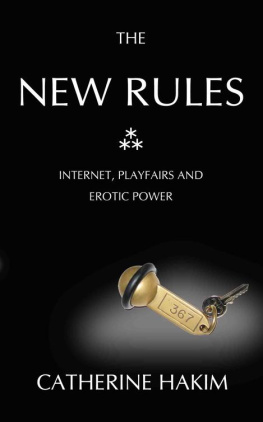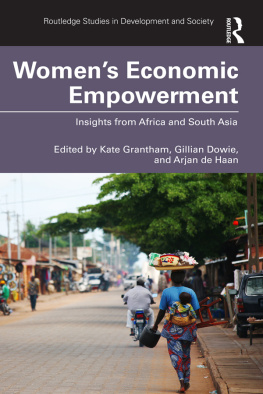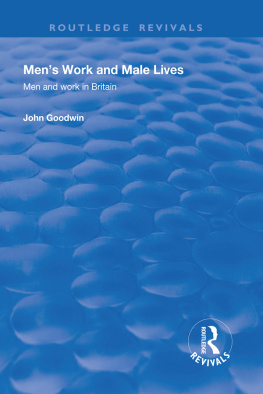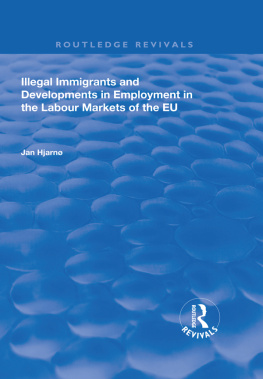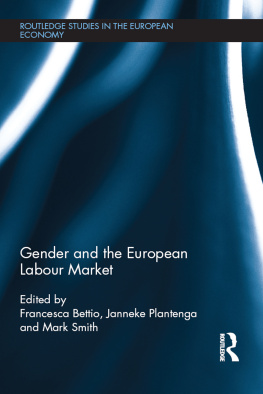
MODELS OF THE FAMILY IN MODERN SOCIETIES
This book reports on two comparative nationally representative surveys of men and women in Britain and Spain, two countries chosen to illustrate the diversity of modern European societies. The British survey was funded within the ESRC Future of Work Research Programme and was carried out by the Office of National Statistics (ONS). Catherine Hakim presents a study of ideal models of the family and family roles, work orientations, patriarchal values, and lifestyle preferences, showing how these impact on womens marital histories, fertility, employment patterns, occupational segregation, and labour mobility, but not on mens labour market participation. Lifestyle preferences and work orientations have a strong impact on womens activities, and especially on married womens employment choices, but patriarchal values (which are most commonly studied by social attitude surveys) have virtually no impact on behaviour. The analyses demonstrate that political and religious values have virtually no connection with orientations to employment and family roles. The book also covers educational homogamy, housing classes and contrasts between ethnic minority groups in core values and labour market participation.
For WRH
Models of the Family in Modern Societies
Ideals and Realities
CATHERINE HAKIM
London School of Economics
First published 2003 by Ashgate Publishing
Paperback edition 2004
Reissued 2018 by Routledge
2 Park Square, Milton Park, Abingdon, Oxon OX14 4RN
711 Third Avenue, New York, NY 10017, USA
Routledge is an imprint of the Taylor & Francis Group, an informa business
Copyright Catherine Hakim 2003
The author has asserted her moral right under the Copyright, Designs and Patents Act, 1988, to be identified as the author of this work.
All rights reserved. No part of this book may be reprinted or reproduced or utilised in any form or by any electronic, mechanical, or other means, now known or hereafter invented, including photocopying and recording, or in any information storage or retrieval system, without permission in writing from the publishers.
Notice:
Product or corporate names may be trademarks or registered trademarks, and are used only for identification and explanation without intent to infringe.
Publishers Note
The publisher has gone to great lengths to ensure the quality of this reprint but points out that some imperfections in the original copies may be apparent.
Disclaimer
The publisher has made every effort to trace copyright holders and welcomes correspondence from those they have been unable to contact.
A Library of Congress record exists under LC control number: 2002041750
ISBN 13: 978-1-138-71417-5 (hbk)
ISBN 13: 978-1-315-19793-7 (ebk)
Contents
There is no more pressing research and public policy issue in the early years of the twenty-first century than that of the future organization of work and family life. Nevertheless, much contemporary analysis is rooted in established prejudices and divorced from sound empirical data. Dr Hakims important new study, part of the Economic and Social Research Councils Future of Work Programme, will help advance contemporary analysis and debate and shed light on some of the key policy issues of the moment.
Offering a fresh account of orientations to employment and family roles, her study draws upon nationally representative surveys of men and women in Britain and Spain. It advances a powerful case that lifestyle preferences between paid work and family work are neither homogeneous nor bounded by traditional gender roles. Contemporary changes in the labour market in Western Europe, particularly the rates and forms of womens participation in paid employment, are traced to the choices that women and men make with regard to the balance between paid work and family life. Challenging both established academic positions and the direction of many contemporary public policy initiatives, Dr Hakims book is essential reading for anyone with a stake in shaping the future of work.
Peter Nolan
Director, ESRC Future of Work Programme
The British survey was funded by a grant from the Economic and Social Research Council, as part of the ESRC Future of Work Research Programme 1998-2003. The survey was carried out by the Office of National Statistics in London, and I am indebted to Olwen Rowlands for her help in making it a success. The Spanish survey was generously carried out for me by Anlysis Sociolgicos Econmicos y Polticos (ASEP), and I am indebted to Professor Dr Juan Dez Nicols for his advice and guidance on making the survey a success.
The following appear in this book by permission:
, by permission of Oxford University Press.
, by permission of Oxford University Press.
, by permission of Oxford University Press.
reprinted from Murphy and Sullivan, Housing Tenure and Fertility in Post-War Britain, 1983, by permission of Professor M. Murphy.
ASEP | Anlysis Sociolgicos Econmicos y Polticos |
BHPS | British Household Panel Study |
BSAS | British Social Attitudes Survey |
CAPI | Computer Aided Personal Interviews |
CATI | Computer Aided Telephone Interviews |
CIS | Centro de Investigacines Sociolgicos (Madrid) |
ESRC | Economic and Social Research Council (Britain) |
EU | European Union |
FFS | Family and Fertility Surveys |
FTE | Full-Time Equivalent |
GHS | General Household Survey (of Britain) |
GSS | General Social Survey (of the USA) |
HMSO | Her Majestys Stationary Office (Great Britain) |
ILO | International Labour Office (Geneva) |
INE | Instituto Nacional de Estadstica (Madrid) |
ISSP | International Social Survey Programme |
LFS | Labour Force Survey |
NCDS | National Child Development Study (1958 cohort) of Britain |
NLS | National Longitudinal Surveys (of Labour Market Experience in the USA) |
OECD | Organisation for Economic Cooperation and Development |
ONS | Office for National Statistics (Britain) |
OOPEC | Office for Official Publications of the European Communities |
SCELI | Social Change and Economic Life Initiative (of the ESRC in Britain) |
WVS | World Values Surveys |
Abbreviations used in tables


